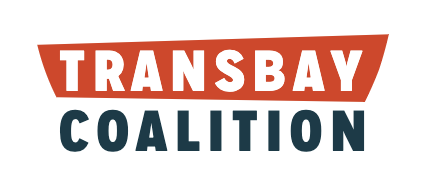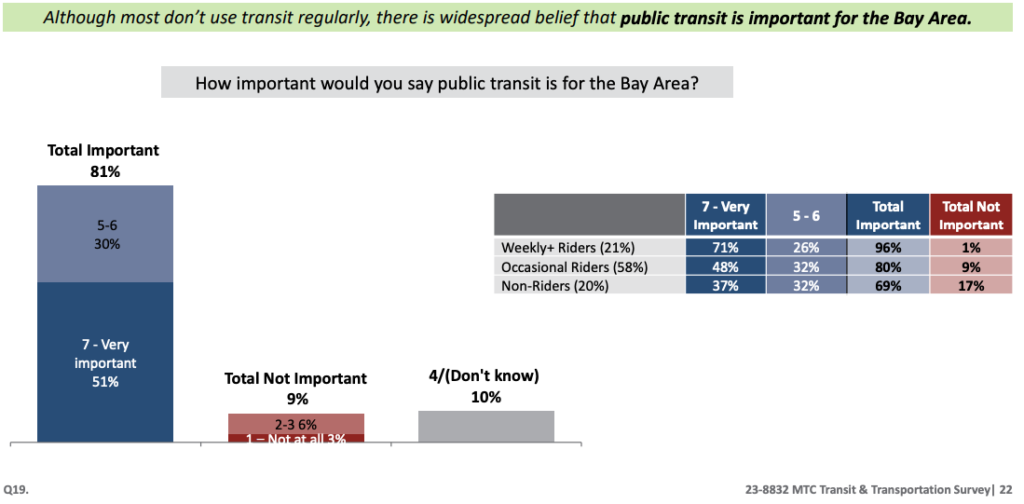New polling data from the Metropolitan Transportation Commission shows that voters support transit but want improvements – and there’s a virtuous cycle between better transit and voter support.
At its workshop in Napa on April 26, the Metropolitan Transportation Commission discussed the new polling about potential ballot measures for public transportation and housing.
Overall, voters – including those that don’t use transit frequently or at all – believe that public transit is important for the Bay Area. But, at least according to the way the poll was worded – voter support is well below the two-thirds level required to pass a regional funding measure.
And, voters strongly support making transit better. There is 90% support for making trains and buses reliable, affordable, and connected, and 88% support for a Seamless transit network with coordinated routes and schedules. Voters also believe it is important to serve communities where residents rely on transit and improved service for schools and after school activities.
Interestingly, positive messages about improving service poll more strongly than messagings about preventing service cuts.
While only a small share report using transit frequently, many occasional riders report that they would use transit more frequently if it was improved.
And the polling indicates an opportunity for a virtuous cycle. Voters who use more transit frequently show stronger support for a transit funding measure.
Current path – housing then transit
Currently, the region is on a path toward an affordable housing bond in 2024 and a transportation funding measure in 2026. At MTC’s commission workshop in Napa, Commissioners reinforced this preference.
The MTC is working with transit agencies and advocacy groups around the state to seek funding from state budget sources to avert the fiscal cliff, prevent cuts, and help regrow ridership.
The polling showed that homelessness and affordable housing are at the top of voters’ concerns.
While the polling shows that an affordable housing bond is also lower than the two-thirds required for passage, there is a bill in the legislature to reduce the threshold to 55%, and if this does not pass, the housing campaign plans a statewide voter initiative to reduce the threshold.

